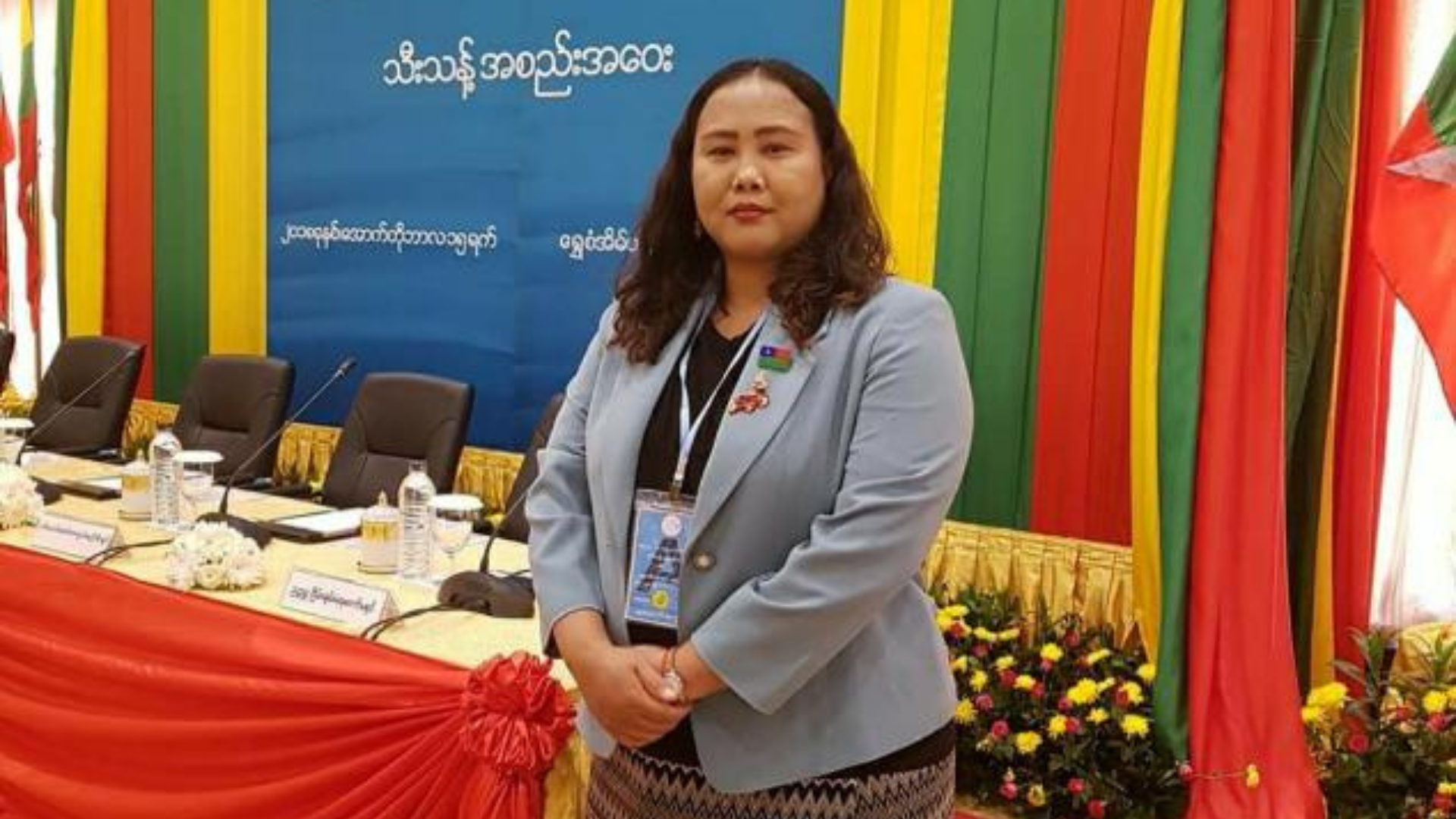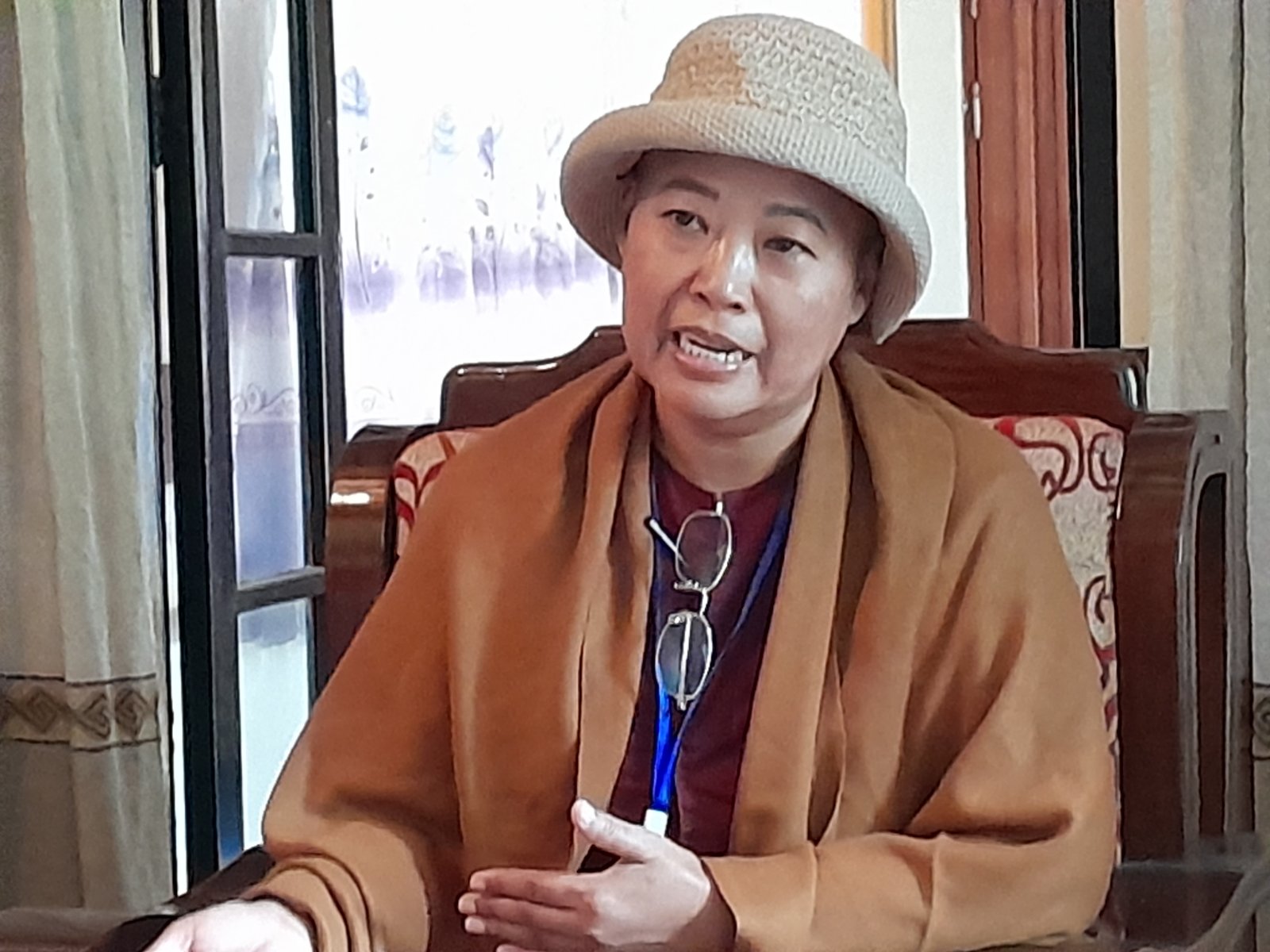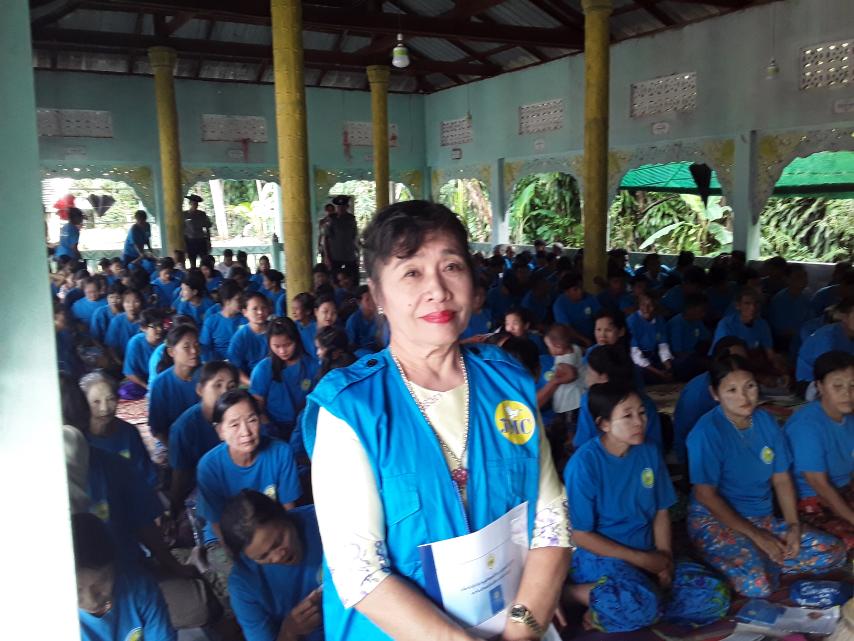
Naw Mildred
Joint–Ceasefire Monitoring Committee (JMC), Women’s Affairs Federation (Dawei, Tanintharyi Region)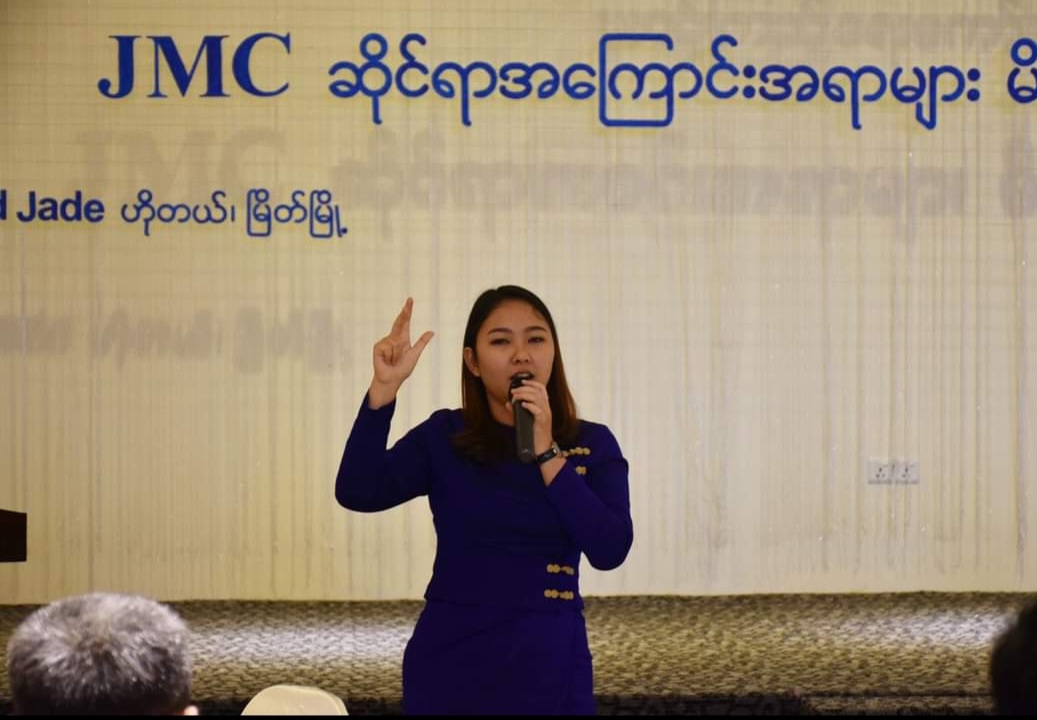
Naw Fuji San
Administrative and Logistics Department at JMC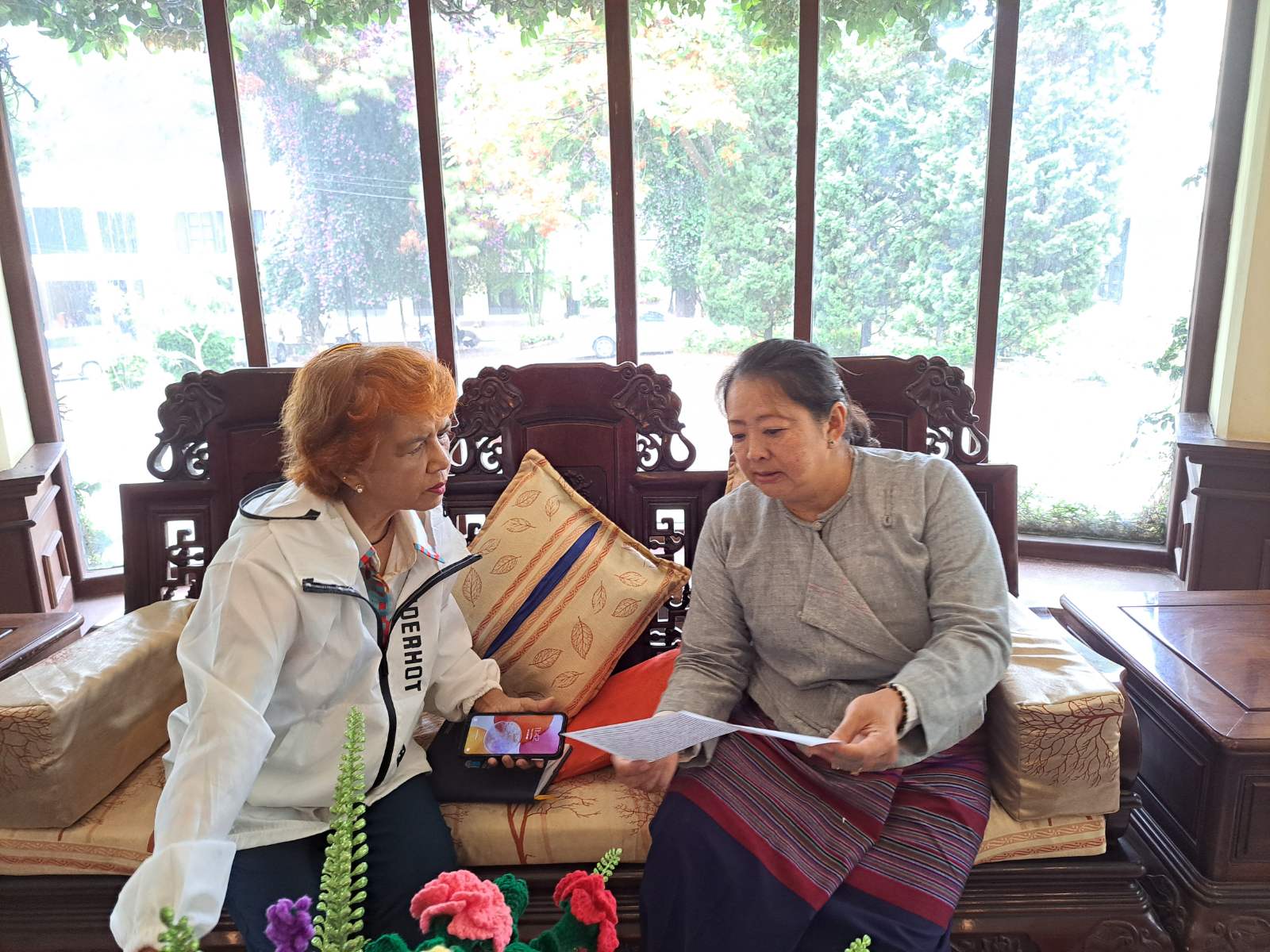
May Hnin Kyaw
“KAN BAW ZA” Youth Library+Reading Club, Taunggy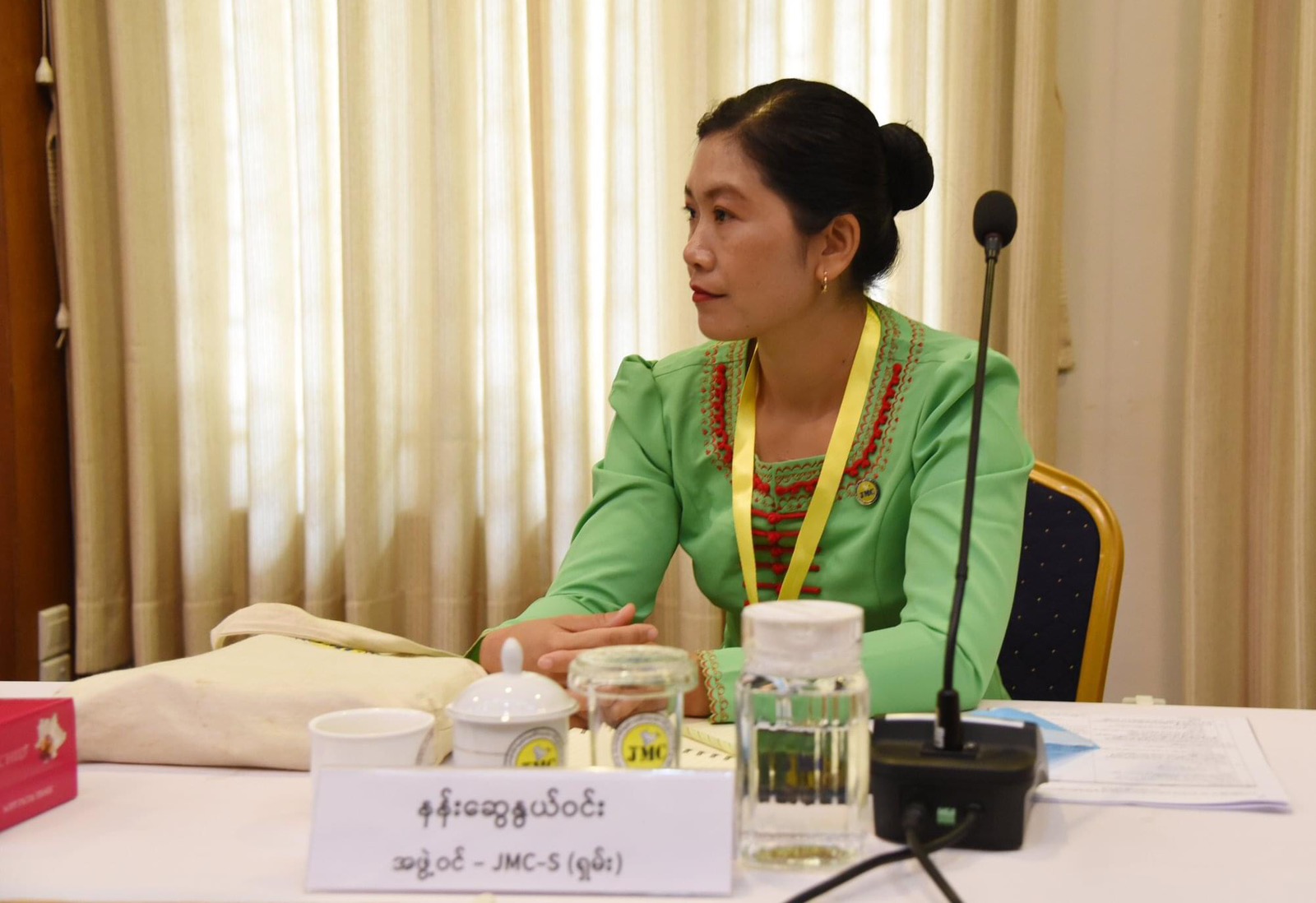
Nan Swe Nwe Win
Joint Monitoring Committee's Literary and Cultural Association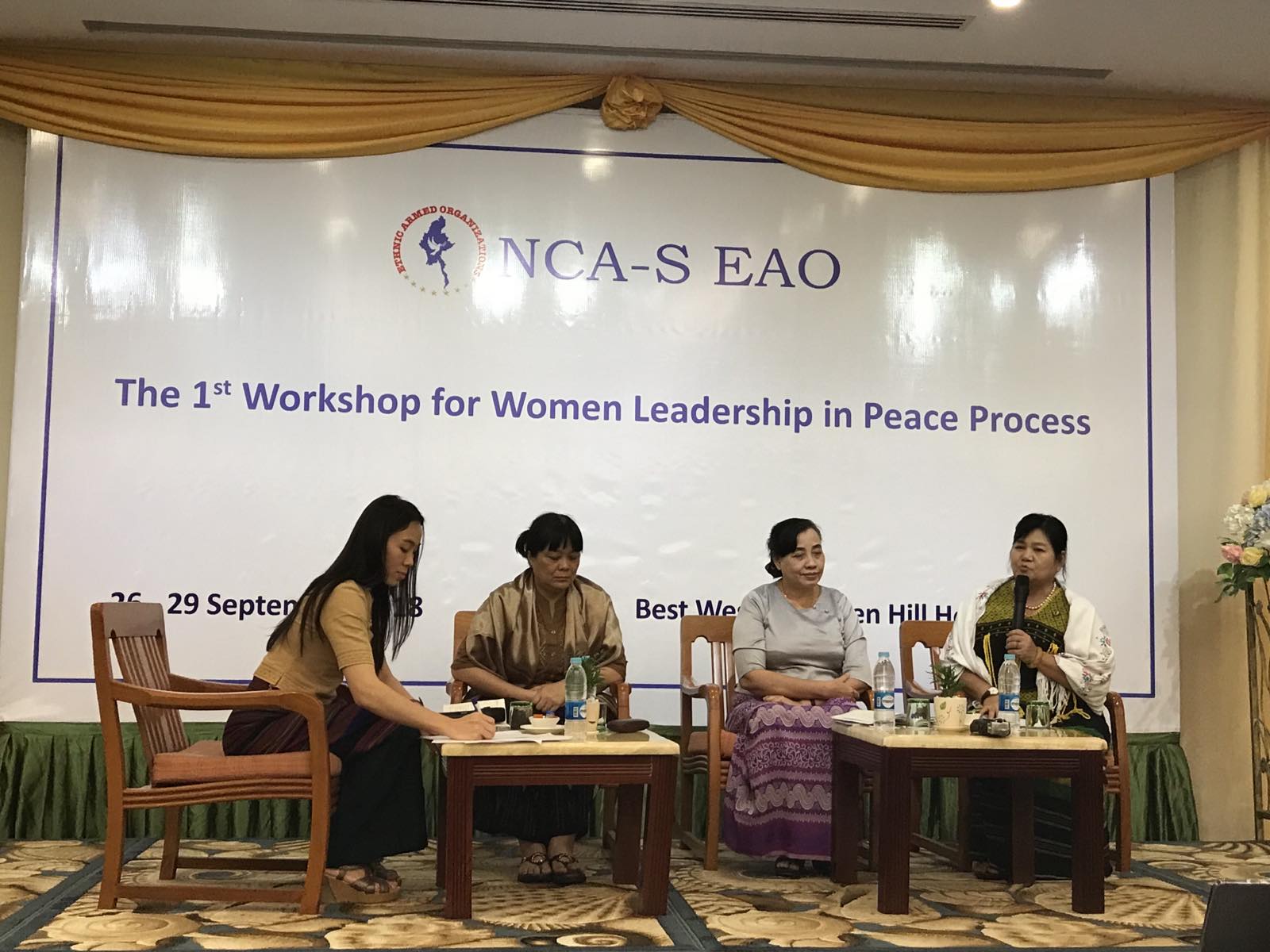
Nan Say Wah
Women Protection Group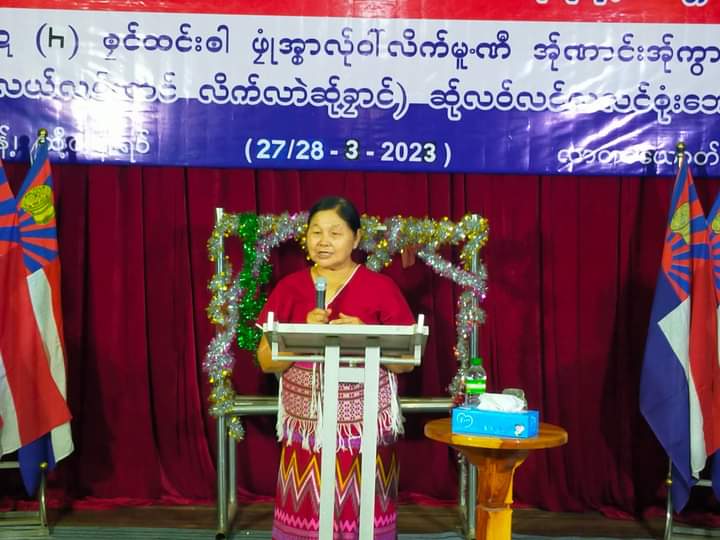
Nan Myint Tin
Kayin Literature and Culture Association & Kayin National Tribal Association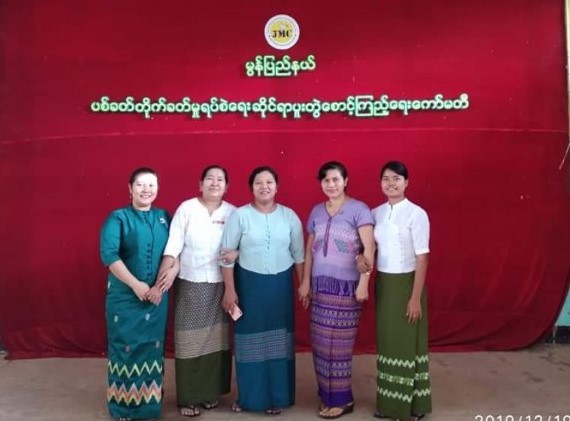
Naw Sah Htoo
Kayin Unity and Peace Committee (KUPC)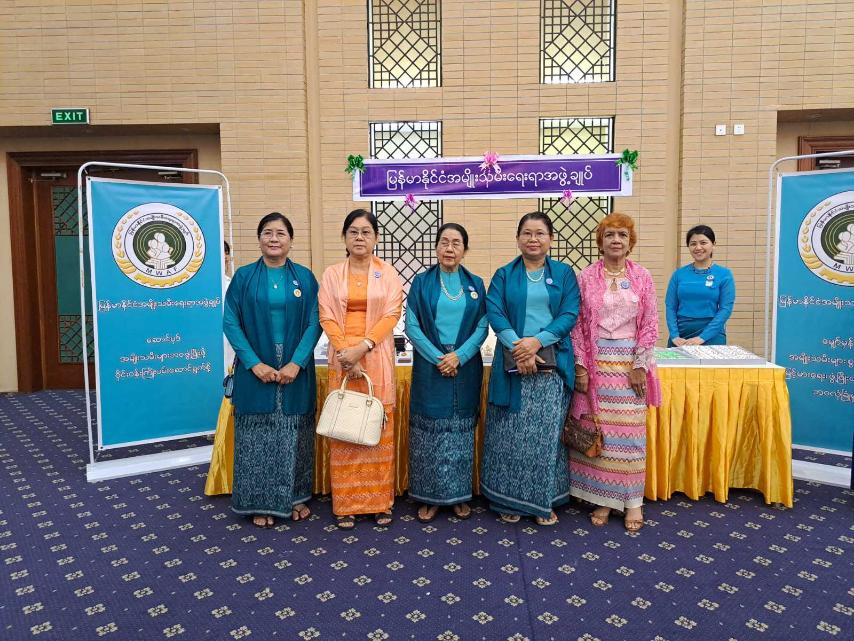
Dr. Thet Thet Zin
Myanmar Women’s Affairs Federation (MWAF)
Representative of Pyithu Hluttaw (Anonymous)
Pyithu Hluttaw
Nilar Oo
Center for Humanitarian Dialogue (HD Center)